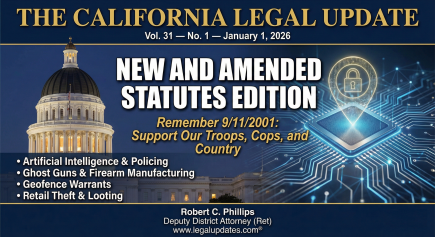

- Ref # CAC00122
- November 22, 2023
Can you coerce a subject into allowing you to search his vehicle? When is consent voluntary – or not?
A defendant’s consent to search his or her vehicle obtained by threatening to impound the car absent such a consent, when impounding the car would not be lawful, invalidates the consent.
-
Consensual vehicle searches
-
False promises of leniency
-
Community caretaking and the impoundment of vehicles
A person’s consent to allow officers to search his or her vehicle is not voluntary under circumstances where the consent obtained is the product of coercion. Threatening to tow their vehicle where to do so would be illegal constitutes coercion.
Defendant Juan Boitez was driving his mother’s car when he was pulled over by a city of Winters (Yolo County) police officer for failing to stop at a stop sign. Although he stopped his vehicle with his right tires more than 18 inches from the curb, being in a residential cul-de-sac, the car was not in a position where it might impede traffic. With the following events video recorded by the officer’s body camera, Boitez was asked for his license, registration, and proof of insurance. He responded that he had none of these documents, showing the officer a California identification card instead. It was quickly determined that Boitez’s license had been suspended. The sole ....







